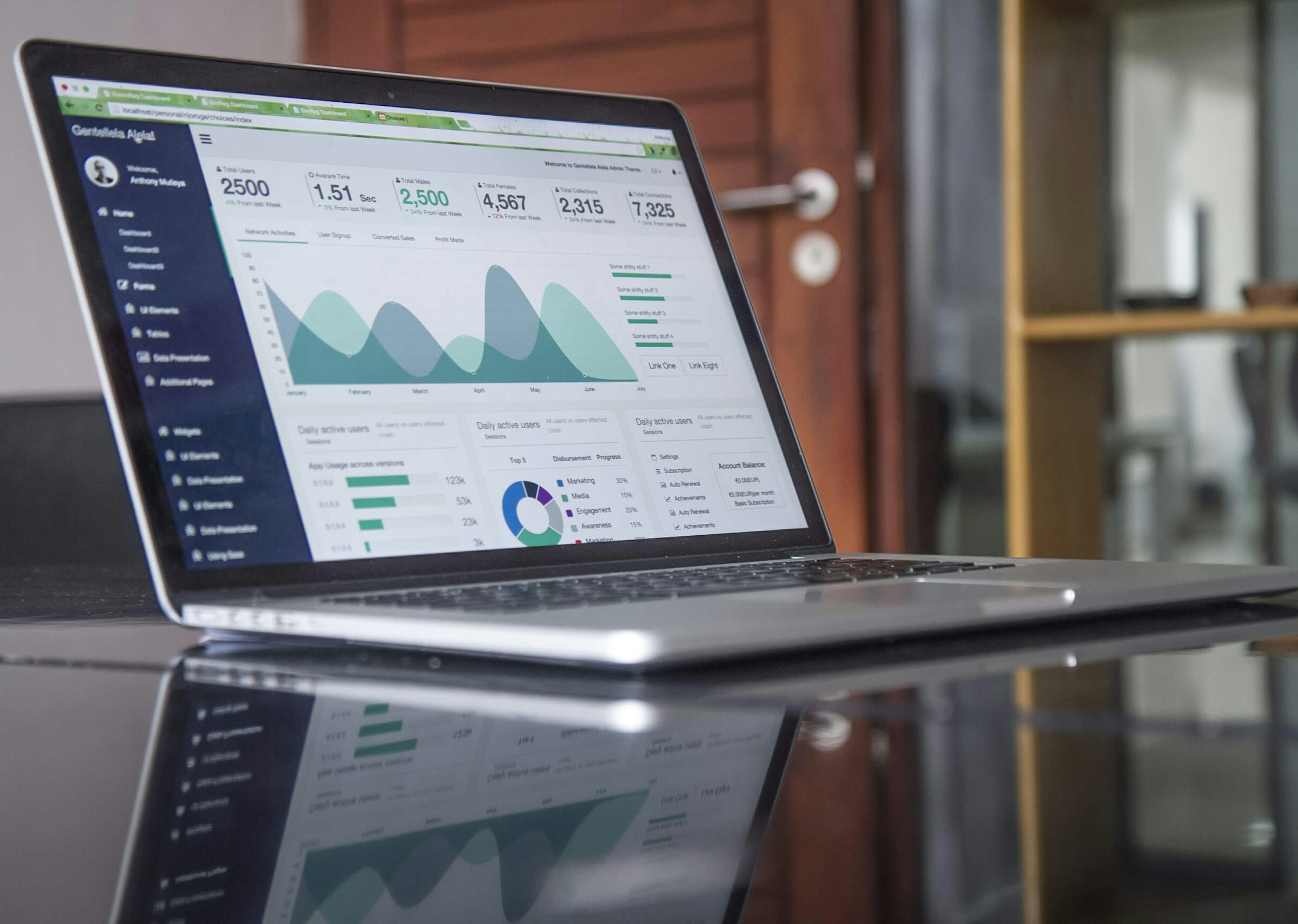Are you struggling to provide a seamless omnichannel customer experience for your audience across various channels? Understanding the best 8 multichannel marketing automation methods to use this year is essential to elevate your marketing efforts. Our guide will equip you with the knowledge and strategies.
Rengage's omnichannel marketing platform is your best companion for achieving these objectives.
Table of Contents
- What Is Multichannel Marketing Automation?
- Why Is Integrating Various Channels Essential For A Cohesive Marketing Strategy?
- The Best 8 Multichannel Marketing Automation Methods in 2024
- What Are The Emerging Trends In Multichannel Marketing Automation For 2024?
- The Future Impact And Opportunities In Multichannel Marketing Automation
- Create Personalized Experiences That Drive Loyalty and Growth with Rengage's Omnichannel Marketing Platform
What Is Multichannel Marketing Automation?

Multichannel marketing automation is a strategic approach that leverages technology to manage, automate, and optimize marketing efforts across multiple communication channels. These channels include:
- Social media
- Websites
- Mobile apps
- SMS and more
The goal is to create a cohesive and personalized customer experience by delivering consistent and relevant messaging to the target audience at various touchpoints throughout their journey.
Multichannel marketing automation integrates various marketing tools and platforms to:
- Streamline the execution of marketing campaigns
- Track customer interactions
- Analyze performance data
It empowers marketers to deliver timely, personalized content, improve engagement, and drive conversions and sales. Here’s an exploration of its components and benefits:
1. Integrated Marketing Platforms
Centralized Management
Multichannel marketing automation platforms provide a unified dashboard for managing campaigns across different channels, ensuring consistency in messaging and branding.
Data Integration
These platforms integrate with Customer Relationship Management (CRM) systems, e-commerce platforms, and other data sources to gather comprehensive customer insights and enable personalized marketing.
2. Customer Segmentation
Data-Driven Segmentation
By analyzing customer data such as demographics, behavior, purchase history, and preferences, marketers can segment their audience into distinct groups for targeted campaigns.
Dynamic Segmentation
Automation tools can dynamically update segments based on real-time data, ensuring marketing messages are always relevant and timely.
3. Personalized Content Delivery
Personalization Engines
These engines use algorithms and machine learning to create personalized content recommendations for individual users based on their past interactions and preferences.
Dynamic Content
Marketers can create content that dynamically changes based on the recipient's profile, ensuring each customer receives a tailored message.
4. Automated Campaign Execution
Workflow Automation
Multichannel marketing automation platforms allow marketers to create complex workflows that automate the delivery of emails, social media posts, SMS, and other communications based on predefined triggers and rules.
Scheduled Campaigns
Marketers can schedule campaigns to be delivered at optimal times, enhancing the likelihood of engagement and conversion.
5. Behavioral Tracking and Analytics
Customer Journey Mapping
These tools track customer interactions across multiple channels, mapping out the entire customer journey to provide insights into user behavior and preferences.
Performance Metrics
Marketers can monitor key performance indicators (KPIs) such as:
- Open rates
- Click-through rates
- Conversion rates
- ROI
Related Reading
- Omnichannel CRM
- Omnichannel Marketing Tools
- Omnichannel eCommerce
- Omnichannel Marketing Strategy
- Omnichannel Personalization
- Omni Channel Marketing Examples
- Omni Channel Customer Engagement
- Omnichannel Marketing Automation
- Marketing Automation ROI
Why Is Integrating Various Channels Essential For A Cohesive Marketing Strategy?

Consistent Brand Messaging
Unified Voice
Ensuring all communications across different channels reflect a consistent brand voice helps build a solid and recognizable brand identity.
Customer Trust
Consistency in messaging fosters trust and reliability among customers, as they receive uniform information and experiences regardless of the channel they interact with.
Enhanced Customer Experience=
Seamless Journey
Integration allows for a smooth channel transition, creating a seamless customer journey. For instance, a customer interacting with a brand on social media can easily continue their engagement via email or the brand’s website.
Personalized Interactions
By consolidating data from various channels, marketers can comprehensively view each customer’s preferences and behavior, enabling more personalized and relevant interactions.
Improved Data Insights and Analytics
Holistic View
Integrating channels provides a 360-degree view of customer interactions, allowing for more accurate and comprehensive data analysis.
Actionable Insights
Marketers can uncover patterns and trends with integrated data, leading to actionable insights that drive better decision-making and campaign optimization.
Increased Efficiency and Cost-Effectiveness
Streamlined Operations
A cohesive strategy minimizes redundancies and streamlines operations, reducing the time and resources needed to manage separate campaigns for each channel.
Budget Optimization
Marketers can allocate budgets more effectively by understanding which channels perform best and how they interact, maximizing ROI.
Better Engagement and Higher Conversion Rates
Multi-Touchpoint Engagement
Engaging customers across multiple touchpoints increases the chances of capturing their attention and driving them toward conversion.
Synergistic Effect
When channels work harmoniously, they amplify each other’s impact, leading to higher engagement rates and improved overall campaign performance.
Adaptive and Responsive Marketing
Real-Time Adjustments
Integrated marketing platforms enable real-time monitoring and adjustments, allowing marketers to respond quickly to changing customer behavior and market conditions.
Agility
This agility helps stay relevant and competitive, as marketers can swiftly adapt their strategies based on the latest data and insights.
Enhanced Customer Retention and Loyalty
Consistent Engagement
Regular, cohesive communication across channels keeps the brand top-of-mind for customers, encouraging repeat engagement and purchases.
Loyalty Programs
Integrating channels allows for the seamless execution of loyalty programs. Customers can earn and redeem rewards through various touchpoints, enhancing their overall experience and loyalty to the brand.
The Best 8 Multichannel Marketing Automation Methods in 2024

1: Email Marketing Automation - Redefining Customer Engagement
Email Marketing Automation is crucial for building connections and boosting engagement through personalized and timely communication. Triggered campaigns, including:
- Welcome emails
- Abandoned cart reminders
- Post-purchase follow-ups
- Win-back campaigns
2: Social Media Automation - Streamlining Engagement
Social Media Automation enhances brand presence and engagement by:
- Scheduling posts
- Streamlining workflows
- Understanding audience preferences
Tools like Hootsuite and Buffer enable efficient content planning, while brand watch and mention help monitor conversations and trends effectively.
3: SMS Marketing Automation - Driving Immediate Customer Responses
SMS Marketing Automation ensures high open rates and immediate customer responses. Strategies like:
- Appointment reminders
- Shipping notifications
- Flash sales
- Loyalty program updates
- Personalize interactions
- Drive customer engagement effectively.
4: Chatbot and AI-Driven Messaging - Personalized Customer Interactions
Chatbots play a significant role in multichannel marketing automation, providing:
- Round-the-clock support
- Personalized interactions
- Lead qualification
- Increased conversion rates
Simple rule-based, natural language processing and machine learning chatbots offer varying personalization and efficiency.
5: Automated Content Marketing - Delivering Consistent Value
Automated Content Marketing simplifies the content creation and distribution process, ensuring consistent delivery of valuable content across channels. Tools like WordPress and HubSpot help schedule blog posts and maintain editorial control for high-quality, audience-centric content.
6: Customer Journey Mapping and Automation - Orchestrating Seamless Experiences
Automating Customer Journey Mapping allows for data-driven insights, personalized customer experiences, and streamlined workflows. Tools like Lucidchart and InVision facilitate the visual representation of customer journeys, enabling automated communication at different stages to enhance customer engagement.
7: Personalized Ad Campaigns - Reaching the Right Audience with the Right Message
Programmatic advertising optimizes ad campaigns by targeting specific audience segments, personalizing ad content, and optimizing bids in real-time. Platforms like Google Ads DSP and The Trade Desk enhance audience targeting and dynamic ad personalization for higher ROI.
8: Cross-Channel Analytics and Reporting - Measuring Success and Optimizing Performance
Cross-Channel Analytics tools track:
- Critical KPIs
- Identify customer behavior patterns
- Measure ROI for marketing campaigns across channels
Integration with web analytics tools and CRM systems empowers data-driven decision-making and optimization for better campaign performance.
Related Reading
- Omnichannel Marketing Trends
- Challenges In Omnichannel Commerce
- Omnichannel Marketing Software
- Omnichannel Customer Experience Examples
- Benefits of Omnichannel Marketing
- B2B Omnichannel Marketing
- Omnichannel KPIs
- Omnichannel Lead Generation
- Omnichannel Reporting
- Omnichannel Best Practices
- Seamless Omnichannel Experience
What Are The Emerging Trends In Multichannel Marketing Automation For 2024?

Advanced Predictive Analytics
Customer Behavior Prediction
AI algorithms are expected to evolve to a point where they can accurately predict customer behavior. By sifting through extensive data from various sources, these algorithms will give marketers insights into:
- Customer needs
- Preferences
- Purchasing patterns
Proactive Engagement
With predictive analytics, marketers can engage with customers proactively, offering solutions even before they are sought. This level of foresight enhances customer satisfaction and loyalty, setting the stage for stronger brand-customer relationships.
Natural Language Processing (NLP)
Enhanced Customer Interactions
AI-powered chatbots and virtual assistants will leverage NLP technology to facilitate more natural and intuitive customer interactions. By better understanding context and nuances, these tools will significantly enhance customer support and engagement.
Content Creation and Curation
NLP will be instrumental in generating and curating content tailored to individual preferences, ensuring that marketing materials remain relevant and engaging even as preferences evolve.
AI-Powered Personalization Engines
Hyper-Personalized Experiences
AI technology will enable hyper-personalization by analyzing user data in real-time to deliver personalized content, offers, and recommendations across all touchpoints. This level of personalization ensures that customers receive tailored experiences that resonate with their unique needs and preferences.
Dynamic Personalization
Marketing campaigns can dynamically adjust content based on user interactions, ensuring that each engagement remains relevant and timely. This adaptability is key to staying ahead in the ever-evolving marketing landscape.
Automation and Optimization
Campaign Automation
AI will be critical in automating complex marketing workflows, from audience segmentation to content delivery. By optimizing campaigns for maximum efficiency and impact, marketers can focus more on strategy and creativity rather than mundane tasks.
Real-Time Optimization
AI will continuously analyze campaign performance and make real-time adjustments to improve outcomes. This real-time intervention reduces the need for manual tinkering, allowing marketers to react swiftly to changing market dynamics.
Data-Driven Personalization
Comprehensive Data Integration
Marketers increasingly integrate data from various sources, including social media, purchase history, and online behavior, to create holistic customer profiles. This comprehensive data integration ensures a more personalized approach to reaching customers.
Personalized Product Recommendations
Enhanced algorithms will refine product recommendations, providing customers with more accurate and relevant suggestions. These tailored recommendations will boost conversion rates and enhance customer satisfaction.
Behavioral and Contextual Personalization
Real-Time Personalization
AI will facilitate real-time personalization of marketing messages and offers based on a customer's current behavior and context. This level of personalized interaction ensures that customers always receive relevant content.
Emotional AI
AI systems will delve into customer emotions and sentiments to personalize interactions and content, forging deeper connections between brands and customers. This emotional intelligence allows for more personalized and meaningful engagement.
Omnichannel Personalization
Consistent Personalization Across Channels
Personalization efforts will soon be integrated across all channels, ensuring customers receive a consistent and seamless experience regardless of the touchpoint. This integration is vital in creating a cohesive brand experience.
The Future Impact And Opportunities In Multichannel Marketing Automation

The Rise of Artificial Intelligence (AI) and Machine Learning (ML)
Hyper-Personalization
AI will enable even deeper levels of personalization across channels. Imagine AI-powered chatbots that tailor conversations to individual customer needs in real-time, or dynamic ad creative that adjusts based on user behavior.
Predictive Marketing Automation
Machine learning algorithms will analyze vast amounts of customer data to predict future behavior. This allows for proactive automation, such as sending personalized recommendations or targeted promotions before a customer even expresses a need, significantly boosting conversion rates.
Automated Content Creation and Optimization
AI will assist in creating and optimizing marketing content. Imagine AI-powered tools that generate personalized blog posts, social media captions, or email subject lines based on audience demographics and preferences.
The Integration of Voice Assistants and Chatbots
Conversational Marketing
Voice assistants like Alexa and Google Assistant will become central to the customer journey. Imagine booking appointments, ordering products, or getting customer support through voice interactions, all facilitated by automated systems integrated with marketing automation platforms.
Omnichannel Chatbot Experiences
Chatbots will transcend individual platforms and offer seamless multichannel experiences. Imagine a chatbot that starts a conversation on a brand's website, then seamlessly transitions to a messaging app for further assistance, creating a more cohesive customer experience.
The Power of Customer Data Platforms (CDPs)
Unified Customer Profiles
CDPs will act as centralized hubs, unifying customer data from various sources (website behavior, social media interactions, purchase history) to create a single, holistic view of each customer. This allows for hyper-targeted automation strategies and a deeper understanding of customer preferences.
Real-Time Customer Insights
CDPs will provide real-time access to customer data, allowing marketers to make data-driven decisions instantly. Imagine adjusting an automated campaign based on a surge in website traffic for a specific product, all within minutes.
The Growing Importance of Customer Privacy and Security
Ethical Data Collection and Usage: Regulations and customer expectations around data privacy will continue to evolve. Brands will need to implement transparent and ethical data collection practices, ensuring customer trust and compliance with evolving regulations.
Focus on Customer Value: Marketing automation will shift towards providing true value to customers. Imagine personalized recommendations that genuinely enhance the customer experience, not just push for a sale.
Opportunities and Actionable Steps
Embrace AI and Machine Learning
Explore AI-powered tools and platforms for content creation, audience segmentation, and predictive marketing automation.
Integrate Voice Assistants and Chatbots
Develop chatbots that offer seamless, omnichannel customer service experiences.
Leverage Customer Data Platforms
Implement a CDP to create unified customer profiles and personalize marketing strategies across channels.
Prioritize Customer Privacy and Security
Ensure transparent data collection practices and prioritize ethical data usage to build trust.
Focus on Customer Value
Move beyond traditional lead nurturing and focus on delivering genuine value in every automated interaction.
No-Code Customer Journey Orchestration
We provide a comprehensive solution for managing and enhancing customer journeys, delivering insights and measurable outcomes with no code. We accelerate your customer journey from onboarding, activation to conversion and churn. Enabling customers to unlock revenue from their existing user.
With Rengage, you can get insights into your segments, run campaigns with an intuitive journey manager, and get insights to measure how your journeys impact users conversion through our Journey Moments and Journey Builder features.
- Journey Moments: insights into your micro-segments
- Journey Builder: intuitive multi-channel marketing automation
- Insights prediction and attribution.
Book a free demo to transform customer interactions into personalized experiences that drive loyalty and growth with our omnichannel marketing platform.
Create Personalized Experiences That Drive Loyalty and Growth with Rengage's Omnichannel Marketing Platform
Rengage is a multichannel marketing automation platform that provides a comprehensive solution for managing and enhancing customer journeys. This powerful platform offers features to accelerate customer journeys from onboarding to churn, ultimately unlocking revenue from existing users.
Micro-Targeting with Journey Moments
One of Rengage's standout features is its ability to provide insights into micro-segments through Journey Moments. This feature allows users to understand their audience better, enabling them to tailor their marketing strategies to specific groups for maximum impact. By leveraging Journey Moments, users can create targeted campaigns that resonate with their audience and drive conversions.
Automating Personalized Experiences
Another key feature of Rengage is the journey builder, an intuitive multi-channel marketing automation tool that empowers users to create seamless customer journeys across various touchpoints.
By utilizing the journey builder, users can streamline their marketing efforts and ensure consistent messaging and branding across all channels. This level of consistency is vital and consumers expect personalized experiences at every turn.
Automating Personalized Experiences
Insights prediction and attribution are also central to Rengage's value proposition. By providing users with in-depth analytics and reporting capabilities, Rengage enables businesses to measure the impact of their customer journeys effectively. This data-driven approach allows users to make informed decisions based on real-time insights, optimizing their marketing strategies for maximum ROI.
The Rengage Advantage: A Suite of Features
Rengage is a versatile and powerful platform that offers a wide range of features to enhance customer interactions. From journey moments to the journey builder and insights prediction and attribution,
Rengage equips users with the tools they need to drive loyalty and growth in today's competitive marketplace.
Related Reading
- Hubspot vs Marketo
- Activecampaign Alternatives
- Constant Contact Alternatives
- Omnichannel Marketing Companies
- Getresponse Alternatives
- Hubspot Marketing Alternatives
- Salesforce Marketing Cloud Alternatives
